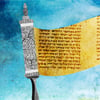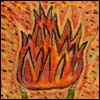This past Friday, the Reader's Digest magazine announced its "2008 Hero of the Year." Every month the periodical features a heroic individual. At the end of the year, the readers are asked to choose the individual whose heroic act stands out from the rest. This year's elected hero is Moezeldin Elmostafa, a Sudanese immigrant taxi driver.
In 2006, the Duke lacrosse team scandal was making waves in the national media when Elmostafa received a phone call from one of the player's attorney. Elmostafa had driven that player home on that fateful night. Elmostafa agreed to testify in the player's defense, vouching that the player was in his cab at the time of the purported assault.
Little did Elmostafa know that the prosecutor in the case, Michael Nifong, wasn't exactly motivated by a sense of fairness and justice. Two weeks later, Elmostafa was arrested on a charge relating to a minor crime—charges that were settled years earlier. He immediately realized that this was a strong-arm attempt to scare him into recanting his testimony.
But he stood firm on his principles. With his limited funds he hired an attorney to defend him against the frivolous charges—and he gave his exculpatory testimony under oath.
Eight months later the Duke players were cleared. Nifong was disbarred. Elmostafa was heralded as a hero.
Now, there are two types of heroes. There is the "good samaritan" type hero who experiences a moment of complete transcendence. On a moment's notice, when espying a fellow in danger, he risks life and health and rushes to a victim's aid. Most of the heroes on the Reader's Digest ballot were of this ilk: the men who following a tornado saved children trapped in a collapsed school; the man who jumped into a frigid river to save a woman and her child; the man who fought a pit bull that was mauling a pedestrian. Regarding such heroes the Talmud says, "There is one who earns his World-to-Come in one moment."
But the readers – wisely, in my estimation – chose a person whose heroism wasn't a spur-of-the-moment act. They chose a hero who for an extended period of time lived in fear—but nevertheless stood by his convictions. A person who was willing to live by his ideals, no matter the consequences. His heroism wasn't an extra-curricular activity; it defined who he was.
There are two types of holidays: a) Purim. b) All the others.
All other holidays are other-worldly experiences. We spend time in the synagogue, not at the workplace. We suspend our daily routines and focus on spirituality. Yes, there's Chanukah, whose eight days are normal workdays, but the holiday's observances are all of a spiritual nature. We light candles—a metaphor for spiritual light, Torah and mitzvot. We pray and recite the Hallel, Psalms of thanksgiving.
And then there's Purim. The day's prayers are minimal—no longer than your average weekday. Instead, the day's mitzvot focus on community and family. Gift giving and feasting. Good food and wine. Very un-transcendent.
That's because the heroism we demonstrated during the Purim events wasn't transcendent. Haman issued his decree on the 13th of Nissan. The decree called for the Jews' annihilation eleven months later, on the 13th of Adar. Though Haman was hanged, the decree was never rescinded. And for eleven months the Jews lived in fear for their lives.
But there was an escape route. Haman's decree was aimed against "Yehudim," Jews who rejected idolatry. Life and security were guaranteed for anyone willing to abandon Judaism.
But throughout the eleven month period, not one Jews exercised this option. For more than 300 consecutive days, every Jew woke up, ate, went to work, spent his leisure time, went to sleep—all with a loyalty to G‑d that trumped the most basic instinct of self-preservation. They lived and breathed mesirat nefesh (supreme self-sacrifice).
Their heroism was rewarded. "On the day the enemies of the Jews had thought they would dominate them, the situation was reversed: the Jews dominated their enemies." And a holiday was established.
But can this miracle be commemorated with an other-worldly, transcendent synagogue session?






